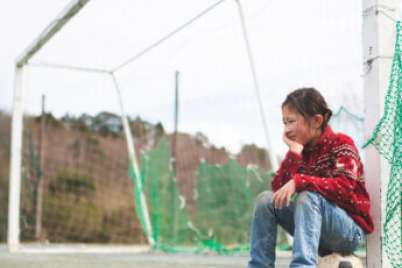
6 things—and 6 words—to say to your kids
If you’d like your kids to stay active in soccer, or dance, or figure skating, or any sport or activity, pay attention to the things you say to them.
As a dad with three active kids who have played over a dozen sports between them, I have to confess that I occasionally transgressed in the early days by offering them “constructive criticism” after games and practices. I beg forgiveness now. Those were my early days as a sport parent.
I was recently forwarded a couple of articles that really get at the heart of why kids drop out of sports. Same old story. All too often, it comes down to adults ruining the experience for them, whether it’s a parent or a coach. I certainly saw all types of negative behaviours displayed by parents and coaches at one time or another, even if I wasn’t guilty of those extremes myself.
Adults don’t have to be extraordinarily verbally abusive to turn kids off sports, or any activity or interest for that matter. It’s quite possible to make kids’ lives miserable at the rink, the sports field, or the dance recital hall with even simple remarks that might seem innocuous.
An article by Australian Kathleen Noonan discusses extreme cases of bad parenting around sports. With acerbic humor, it describes especially poor instances of hyper-sport-parenting and hammers home how the very worst adults kill the joy of play for kids. Her article may describe a small minority of over-the-top parents, but it’s a very worthwhile read.
What should parents say to their kids? As an antidote to the scenario painted by Noonan, this piece [PDF] by Tim Elmore lists six things to say when your kids are doing an activity. This is powerful stuff. Simple and effective.
(Ignore the fact that Elmore’s blog is addressing NCAA college sport in the United States. These phrases are perfectly appropriate for parents with kids of all ages, and even coaches could learn some things from the general tone and tact.)
Elmore’s three pre-game or pre-performance statements:
- Have fun.
- Play hard.
- I love you.
Elmore’s three post-game or post-performance statements:
- Did you have fun?
- I’m proud of you.
- I love you.
Do those comments sound hokey to you? Too soft? Too “pampering”? In my experience, if every parent stuck to these six phrases, they would greatly increase their children’s enjoyment of sport and activity. They would also increase the likelihood of their children sticking with their activities throughout adolescence and beyond.
And if these six phrases are too much to remember, Elmore volunteers another statement that really encapsulates them all. According to Elmore, these six words were the ones most frequently volunteered by college athletes after two college researchers asked them which phrases inspired them the most:
I love to watch you play.”
Wow. Can you imagine how liberating those words might be for a child? There’s no judgment, no censorship, no disapproval, no disappointment, no guilt. Just unconditional love and support.
Is that a bad thing? Does this constitute excessive pampering for an eight-year-old or early teen?
Thankfully, I learned not to badger my own kids after they started their sports and activities. I figured out in a hurry that my well-intentioned remarks were not well received and did nothing to enhance my children’s love of their sport. (Nor their subsequent performances, nor their filial love for their father.)
Of my own accord, following some quiet reflection, I actually started to say to them years ago “I love to watch you play” just as the college researchers discovered. And I immediately saw a difference. They completely relaxed, smiled more, and had more fun. And they all went on to become leading athletes in their respective sports—one in tennis, one in badminton, one in basketball.
I took the same approach with their music practice, and I’ve subsequently had the pleasure to watch all three of them steadily develop and excel in piano and voice. (One also plays flute, another saxophone, and the eldest has taken up guitar on the side for “fun.” There are parallels here with developing the love of sport and activity.)
The whole experience with my children has served to remind me that our kids’ sports and activities are about them, not about us. Our job is merely to encourage and support them. Their job is to explore their interests and decide what they like and what they don’t like.
A small footnote:
A lot of times, what they like isn’t necessarily related to what they are “good” at. True, being good at something is one of the top reasons why kids play sports, but there are other reasons as well. Often kids like to do things simply because … they like to do things. They find an activity intrinsically fun or interesting, and winning a medal or receiving accolades doesn’t even come into it.
Apart from regular feeding and laundry, and perhaps encouraging some “discipline” in their daily habits, I think we really only need to do one thing for our kids. Offer them words of encouragement and let them know we love them regardless of the score.





